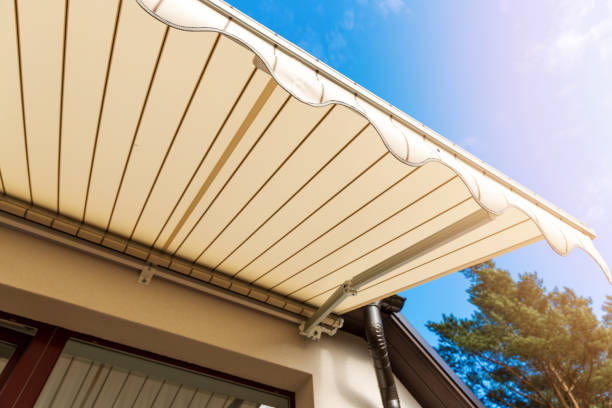
Living in Dubai means dealing with intense sunlight, high temperatures, and occasional sandstorms. For homeowners, business owners, and property developers, installing the right type of shade or awning can make a big difference. Not only do they reduce heat exposure, but they also protect outdoor furniture, Shades and Awnings, and enhance property appearance.
This guide explores the most common shade and awning materials used in Dubai. It looks at their durability, performance in extreme weather, and suitability for different spaces.
Understanding the Role of Shades and Awnings in Dubai
Why Are Shades and Awnings Important?
In Dubai, temperatures regularly exceed 40°C in summer. Without protection, patios, gardens, storefronts, and parking areas become unusable during the day. Shades and awnings help block direct sunlight and reduce UV exposure. This lowers indoor temperatures, protects belongings from fading, and allows outdoor spaces to remain usable.
Common Areas Where They Are Used
- Villa backyards and balconies
- Outdoor seating areas in restaurants
- Covered parking spaces
- Poolside lounges and rooftop terraces
- School playgrounds and mosques
Their usage is widespread due to the region’s climate conditions and growing interest in outdoor lifestyle enhancements.
Popular Shade and Awning Materials Used in Dubai
PVC (Polyvinyl Chloride)
PVC is a synthetic plastic polymer known for its flexibility and strength. It’s widely used in commercial and residential settings.
Pros:
- Water-resistant and UV-resistant
- Can be coated for extra sun protection
- Available in many colors and finishes
- Easy to clean
Cons:
- Can heat up under direct sun
- Not as breathable as fabric options
PVC awnings are commonly used for car
parking shades and commercial awnings due to their tough exterior and long lifespan.HDPE (High-Density Polyethylene) Fabric
HDPE is a knitted fabric that allows light airflow while still blocking out harmful rays.
Pros:
- Excellent heat reduction
- Allows some air to pass through
- Lightweight and easy to install
- Affordable and flexible
Cons:
- Not waterproof
- May stretch over time if not installed correctly
This material is ideal for playgrounds, gardens, and community parks where shade is needed without complete sunlight blockage.
Acrylic Canvas
Acrylic canvas is a woven material often used for retractable awnings and residential shade solutions.
Pros:
- Strong resistance to fading
- Maintains color under sun exposure
- Offers a premium appearance
- Good balance of water and UV resistance
Cons:
- Slightly more expensive than HDPE


